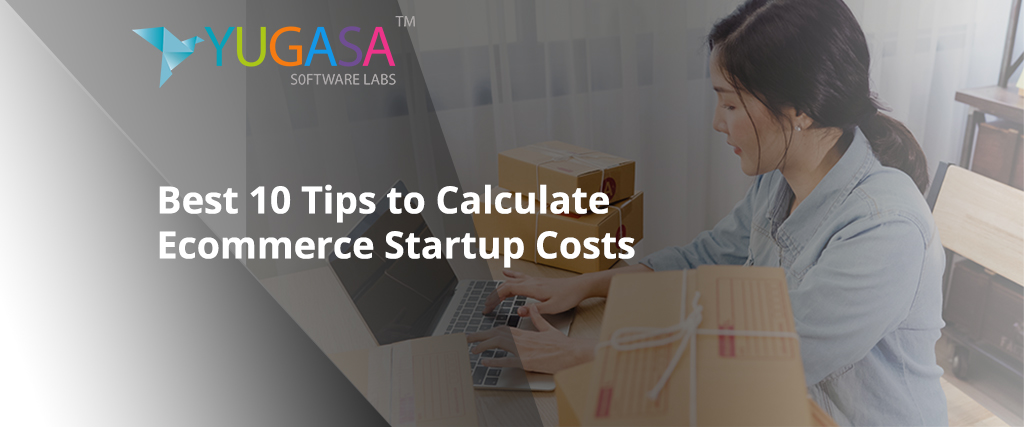Ecommerce Startup Costs: In the wake of taking a shot at a cool business thought, the prime question emerges “What amount will an eCommerce website cost?”
Addressing this question can be tricky.
Some eCommerce businesses can be begun a small spending budget, while it’s not the equivalent for all.
It is fundamental to realize how much money is needed to open and work an eCommerce business to keep it running easily.
Determining eCommerce startup costs is one of the most basic pre-startup undertakings that can give an idea to the proprietor about the eventual fate of their eCommerce website.
Let’s look at the best 10 tips to Calculate Ecommerce Startup Costs:
1. The presence of innovation makes the business more beneficial.
Figure the cost of computers, phones, and copiers that you may require for your startup.
Calculating the IT budget can help you to perceive the aggregate sum that your back-office frameworks, ERP applications, hardware costs;
workstations charges, cell phones, routers, workers, and other systems administration hardware will take.
2. Each eCommerce business requires a working space – Ecommerce Startup Costs
where team members can work and team up. Consider the money that you have to pay for the lease or the redesign of the space.
The lease of your working space is a major expense, and it will assist you with exploring and estimate your general future eCommerce business cost!
3. Sort out the salaries with the advantages
that you’ll offer to your employees. That is a significant piece of an eCommerce startup plan.
The correct salaries and wages of your initial employees can without much of a stretch be dictated by asking yourself some basic inquiries:
- WHAT IS THE CURRENT BUDGET?
- WHAT VALUATION DOES YOUR BUSINESS HAVE?
- DO YOU HAVE YOUR INVESTORS ON-BOARD?
4. You ought to consider the website creation cost
In the instance of a product-based eCommerce business. It relies on different components of the website, similar to the complete number of pages, style of design, page copywriting, responsive design, database combination, eCommerce usefulness, CMS, and so forth.
5. Changing your creative thought into a developing company
Is an extraordinary way. To improve the safety of products and your business, insurance offers privilege protection.
Keep a record of insurance against property harm, business interference, for better planning while at the same time making your eCommerce startup plan.
Insurance gives risk inclusion, yet it additionally offers property security, insurance for product harms, employee assurance, and E&O inclusion.
6. E-commerce businesses consistently need to send
The items to their customers, so your e-commerce startup ought to basically add packaging and dispatching costs.
Even subsequent to giving an incredible customer experience, it is needed to discover a goods shipping partner.
The delivery cost relies on Package Size, Package Weight, Origin Country, and Destination Country.
It can likewise incorporate the insurance and following alternatives for your items.
What’s more, after all the above variables, packaging and marking ought to likewise be incorporated.
So be it DHL, FedEx, or UPS, pick your delivery accomplice admirably!
7. Promoting and advertisements – Ecommerce Startup Costs
Are vital for the growth of an eCommerce business. Figure the necessary cost for promoting your eCommerce site to the correct arrangement of individuals.
Advertising cost is the optional fixed cost that is spending can be changed starting with one budget period then onto the next budget time frame.
You can ask yourself the underneath inquiries to more readily budget showcasing and promoting costs:
- WHAT OUGHT TO BE THE BUDGET FOR YOUR SEO & PPC CAMPAIGNS?
- THE AMOUNT SHOULD YOU SPEND ON TV & PRINT ADVERTISING?
- THE AMOUNT DOES A PURCHASE INTEND TO YOUR ORGANIZATION?
- WOULD YOU Like TO GROW LOCAL OR INTERNATIONAL?
8. Remember to add overtime pay and finance-related expenses to your financial plan.
This will assist you in deciding the spending plan for salary and extra time, and it will control this cost by adding the complete expenses related to salary.
In this way, figure out the additional time hours that you anticipate from a specific position.
These hours will be founded on the extended marketing projections and production inclinations.
Ascertain the hourly additional time pay for all positions and join the finance charges with this number.
9. Lawyer’s recommendation is fundamental
To stay side by side of the lawful issues of the business. Deal with the lawyer’s and expert’s expenses.
This cost will assist you with remaining refreshed with the current consistent necessities and avoid the infringement of industry norms and compliances.
The business legal advisor’s expense can differ according to the area and the attorney’s experience.
10. While calculating your eCommerce startup costs
ensure you count utilities and different costs, the most ignored charges.
Compute all the charges for utilities like water, power, cooling or warming, and so on for a given time-frame.
One more thing to recollect is that you should list the aggregate sum of utilities as selling costs that are utilized to enable an organization to sell merchandise as well as services.
Conclusion
Beginning a business is a test in itself. An eCommerce website cost alongside operational costs is high in the underlying stages and it negatively affects the owner.
The starting process of an eCommerce website can be both consuming and overpowering.
In the event that you are making arrangements for an eCommerce business, we should establish the framework to build up an interactive website.
Yugasa Software Labs is one of the top Outsourcing Companies adept with all the advanced CMS stages like Magento, WooCommerce, PrestaShop, osCommerce, and so on Likewise, our Mobile Application Development Services are favored by worldwide customers.























